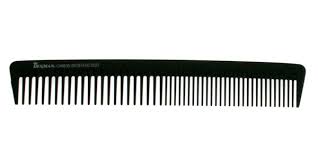记忆方法
将“comb”想象成一个梳子或刷子,它的形状像一排排的齿,可以帮助梳整头发或类似物品,这样就能更容易地记忆这个单词与整理或梳理动作相关。
以上内容由AI生成, 仅供参考和借鉴
中文词源
comb 梳理
来自PIE*gembh, 咬,齿,词源同gem, 齿状结晶体,宝石。
英语词源
- comb
-
comb: [OE] Comb is an ancient word, which has been traced back to an Indo-European *gombhos. This appears to have signified ‘tooth’, for among its other descendants were Sanskrit jámbhas ‘tooth’ and Greek góphos ‘pin, tooth’. In prehistoric West and North Germanic it became *kambaz, which produced English comb, German kamm, and Dutch kam (probably borrowed into English in the 18th century as cam, originally ‘projecting cog-like part on a wheel for transferring motion’).
The Old English verb formed from comb lasted dialectally as kemb until the 19th century, but today it survives only in unkempt. The origin of the word’s application to honeycomb, first recorded in the 13th century, is not known.
=> oakum, unkempt - comb (n.)
- Old English camb "comb, crest, honeycomb" (later Anglian comb), from Proto-Germanic *kambaz (cognates: Old Saxon and Old High German camb, German Kamm, Middle Dutch cam, Dutch kam, Old Norse kambr), literally "toothed object," from PIE *gombhos, from root *gembh- "to bite, tooth" (cognates: Greek gomphos "a molar tooth," Sanskrit gambha-s "tooth").
- comb (v.)
- late 14c. (implied in past participle kombid), verb derived from comb (n.); replacing the former verb, Old English cemban, which however survives in unkempt. Related: Combed; combing.
权威例句
- 1. We went over that area with a fine-tooth comb.
- 我们对那个地区进行了彻底的搜查。
- 2. Your hair needs a good comb.
- 你的头发得好好梳理一下。
- 3. She bent to retrieve her comb from the floor.
- 她弯腰从地上捡起她的梳子。
- 4. Your hair's so tangled that I can't comb it.
- 你的头发太乱了,我梳不动.
- 5. Don't forget to comb your hair before you go out.
- 不要忘记临出门梳梳头.

